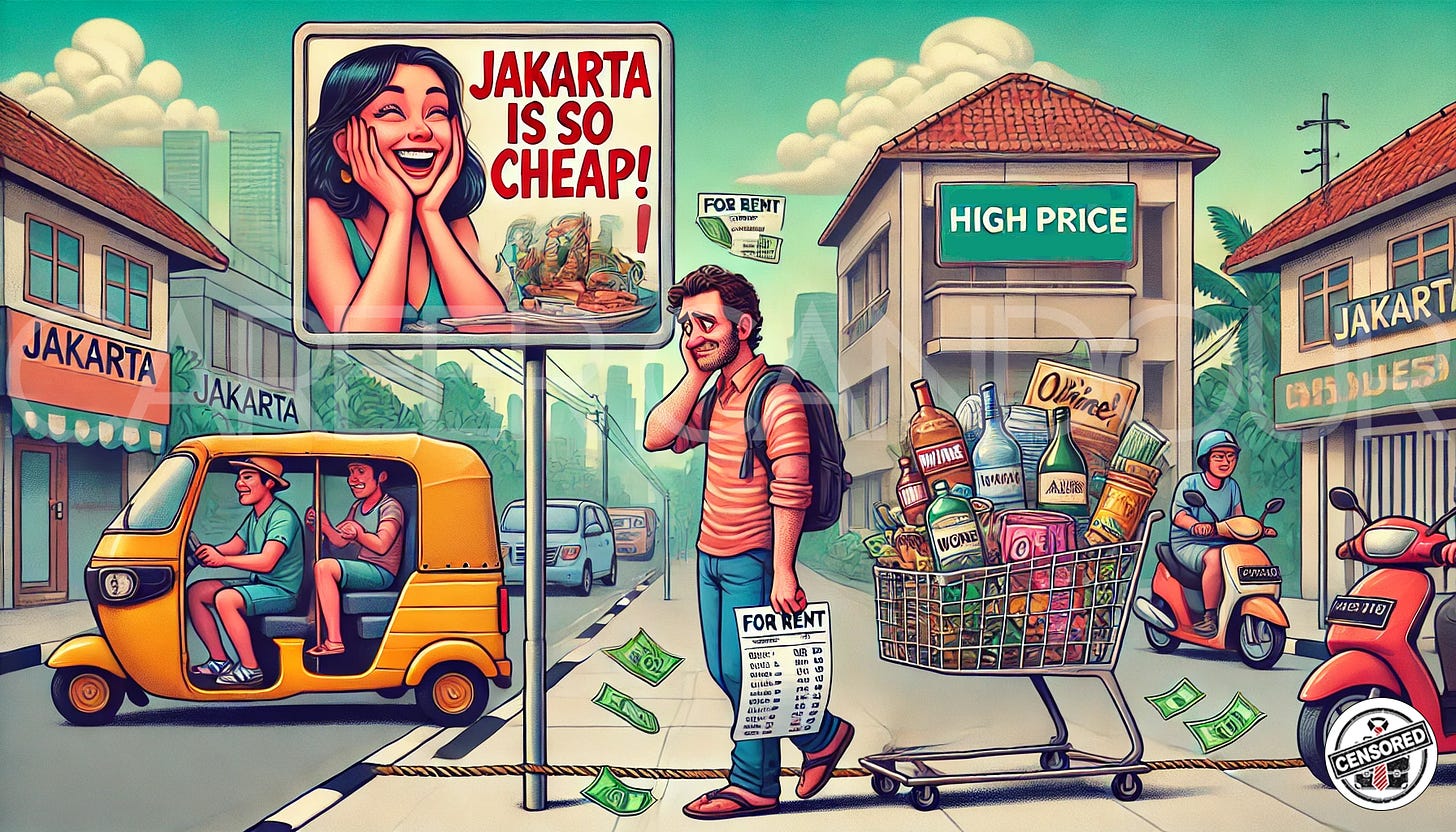Living in Indonesia Is More Expensive Than You Were Told
Expats in places like Indonesia often face higher costs than CPI data suggests. Here’s what really drives expat expenses in frontier markets.
If you’ve ever told someone you’re moving to Jakarta (or Lagos… or Nairobi), you’ve probably heard the same well-meaning but misplaced response:
“Oh wow, it must be so cheap to live there!”
They’ll quote blog posts or cost-of-living websites with the confidence of someone who’s never spent $40 on imported cheese. Meals for $2! Rent that wouldn’t get you …




